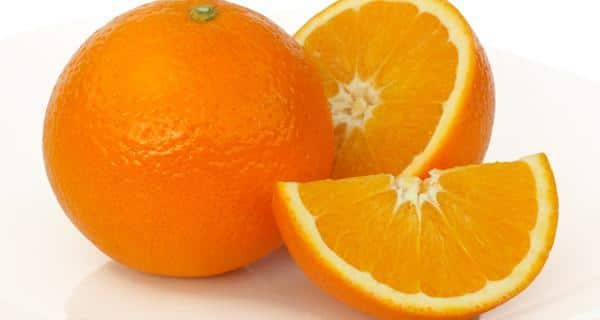Papaya Leaf Tea Benefits

Papaya leaf tea may have potent antioxidant capabilities.
The papaya plant – also called pawpaw in Australia and known scientifically as Carica papaya – is most widely known for its delicious orange fruit. Native to Southern Mexico and the Carribean, papaya now grows throughout most tropical and subtropical countries in the world. Papaya leaf tea may have a number of health benefits including potent antioxidant properties when taken regularly.
Papaya Leaf and Cancer
Papaya leaf tea has been used in tropical regions to treat a number of ailments and recent scientific data suggests that papaya leaf may be useful in fighting cancer. According to research published in the ''Journal of Ethnopharmacology'' in February of 2010, papaya leaf tea showed promise in treating a variety of human cancers in vitro including cervical, breast, lung and pancreatic cancers. Scientists posit that the anticancer effects of papaya leaf tea may be due to the stimulation of immune cells that kill cancer cells. University of Florida researcher Dr. Nam Dang, one of the team members responsible for the study, elaborated on the university's website that papaya leaf tea demonstrated no toxicity on human cells, potentially making it a safe, natural treatment for many forms of cancer.
Natural Ulcer Remedy
Papaya leaf tea may also be a benefit for gastric ulcers, according to research published in "The West Indian Medical Journal" in September 2008. Researchers found that papaya leaf tea prevented gastric ulcers in rats subjected to alcohol compared to the control group. Further, the rats pre-treated with papaya leaf showed less oxidative stress in their blood, suggesting that papaya leaf tea had a strong systemic antioxidant effect. Researchers attributed the reduction in ulcer formation and oxidative stress – at least in part – to an increase in glutathione peroxidase activity – an important antioxidant function that prevents free radical-damage in the body.
Other Antioxidant Effects
Other research suggests that papaya leaf may reduce hydrogen peroxide – a marker for oxidative damage. Research published in the ''Asian Pacific Journal of Tropical Biomedicine'' in June 2012 showed that while papaya leaf tea did not demonstrate as many antioxidant properties as ascorbic acid, scientists still concluded that it may have potential pharmacological and nutritional benefits in preventing or reducing free radical-damage. More research is needed to determine papaya leaf tea's antioxidant properties in human subjects.
Quick Tips
Always work with your doctor or other qualified health-care professional before self-treating with herbs. This is particularly true if you have cancer or another serious health issue. Papaya leaf tea may be a suitable safe and natural adjunct treatment for cancer and other diseases in which the immune system needs support and in the prevention of free-radical damage.

Papaya leaf tea may have potent antioxidant capabilities.
The papaya plant – also called pawpaw in Australia and known scientifically as Carica papaya – is most widely known for its delicious orange fruit. Native to Southern Mexico and the Carribean, papaya now grows throughout most tropical and subtropical countries in the world. Papaya leaf tea may have a number of health benefits including potent antioxidant properties when taken regularly.
Papaya Leaf and Cancer
Papaya leaf tea has been used in tropical regions to treat a number of ailments and recent scientific data suggests that papaya leaf may be useful in fighting cancer. According to research published in the ''Journal of Ethnopharmacology'' in February of 2010, papaya leaf tea showed promise in treating a variety of human cancers in vitro including cervical, breast, lung and pancreatic cancers. Scientists posit that the anticancer effects of papaya leaf tea may be due to the stimulation of immune cells that kill cancer cells. University of Florida researcher Dr. Nam Dang, one of the team members responsible for the study, elaborated on the university's website that papaya leaf tea demonstrated no toxicity on human cells, potentially making it a safe, natural treatment for many forms of cancer.
Natural Ulcer Remedy
Papaya leaf tea may also be a benefit for gastric ulcers, according to research published in "The West Indian Medical Journal" in September 2008. Researchers found that papaya leaf tea prevented gastric ulcers in rats subjected to alcohol compared to the control group. Further, the rats pre-treated with papaya leaf showed less oxidative stress in their blood, suggesting that papaya leaf tea had a strong systemic antioxidant effect. Researchers attributed the reduction in ulcer formation and oxidative stress – at least in part – to an increase in glutathione peroxidase activity – an important antioxidant function that prevents free radical-damage in the body.
Other Antioxidant Effects
Other research suggests that papaya leaf may reduce hydrogen peroxide – a marker for oxidative damage. Research published in the ''Asian Pacific Journal of Tropical Biomedicine'' in June 2012 showed that while papaya leaf tea did not demonstrate as many antioxidant properties as ascorbic acid, scientists still concluded that it may have potential pharmacological and nutritional benefits in preventing or reducing free radical-damage. More research is needed to determine papaya leaf tea's antioxidant properties in human subjects.
Quick Tips
Always work with your doctor or other qualified health-care professional before self-treating with herbs. This is particularly true if you have cancer or another serious health issue. Papaya leaf tea may be a suitable safe and natural adjunct treatment for cancer and other diseases in which the immune system needs support and in the prevention of free-radical damage.
























